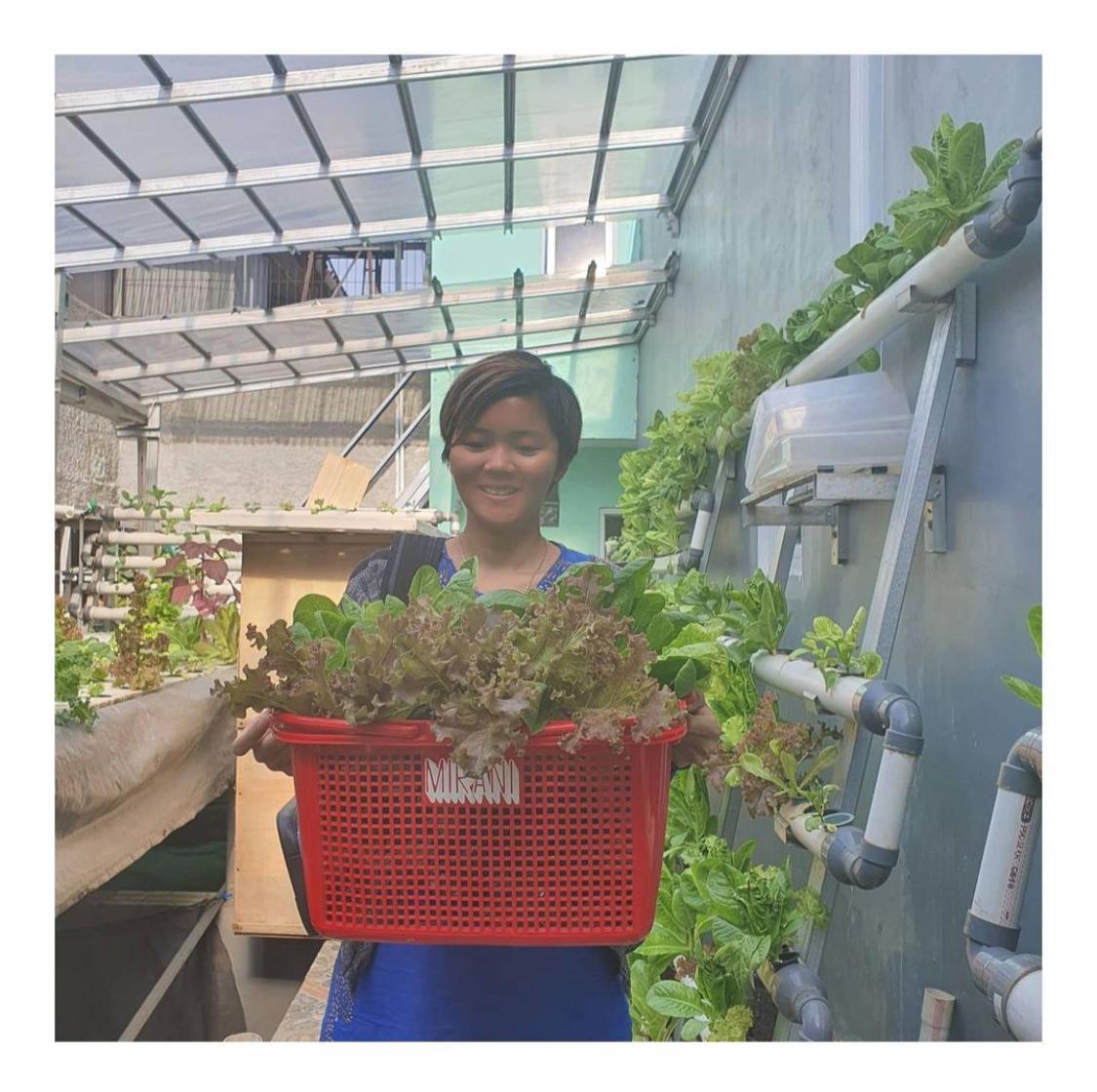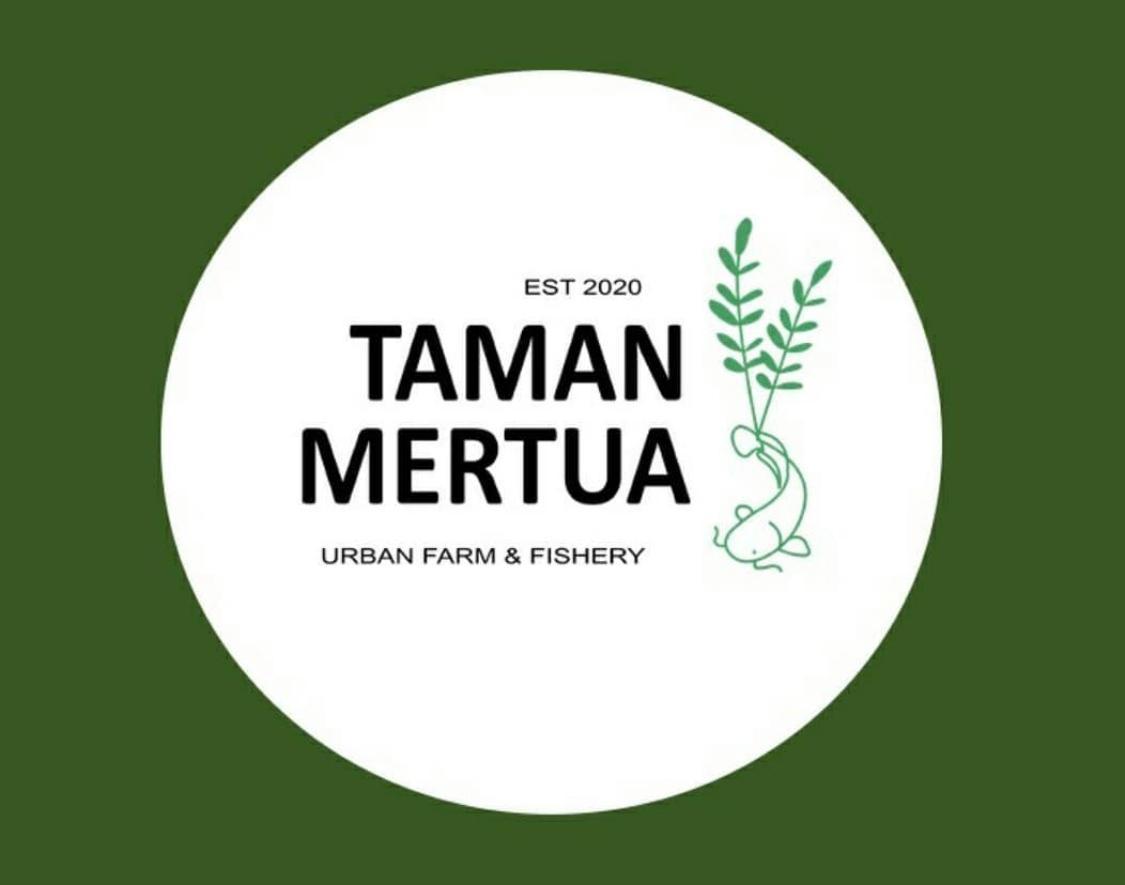





Keep this story going! Share below!
Based on the title of the business, the purpose of this business is “Food Security and Independence”, which means to develop farming needs and fulfill the main food security need, which is food to improve a better quality of life. Healthy food should not be expensive and at the same time can support the green environment, and also can be a way of building an entrepreneurship mindset. People are encouraged and trained to develop their own farms, such as vegetables and fruits in their backyard using the recycled materials. They can consume the vegetables and fruits after harvesting or they can start selling it, turning the farm into a small business. Along with the covid-19 pandemic, many people were impacted by this condition, some people lose their jobs and struggle financially. The owner saw this as a new opportunity to grow her business, and at the same time doing good for society.
The owner of Taman Mertua, Meinar Dyan Muslimah is a 28-year-old entrepreneur who starts her own business in 2017 in pet well-being care, such as pet shops, self-harvesting healthy foods for cats, etc. She’s well experienced working in several big companies such as Frisian Flag, HM Sampoerna, Bayer, and Paragon Technology & Innovation. In addition to building her career in a big corporation where she currently works, she started her own business based on her interest and hobbies. Human and animal well-being and green environment are her main interest and ideas to build her business. Her Petshop is called “Kebun Kaki Empat”. It inspires her to expand the business into supporting human health and better quality of life, which is called “Taman Mertua”.
Taman Mertua’s main activity is the education and socialization of organic farming. At first, it is targeted at the public who are interested in having a healthier lifestyle and better quality of foods to consume. But then, since the beginning of 2020, the covid-19 case hit the country and also the economy. So Taman Mertua provides more of those who are impacted to solve their financial problem in fulfilling good foods and entrepreneurial activity. Located in Perumnas 3 Bekasi, in her backyard, Dyan started to build her own farm and expand her business bigger and bigger.
To start her business, she sacrificed her pension fund as her initial capital and she registered her own corporation legally. She bought a new house with a bigger backyard and the location is not far from her mother’s as she needed more space to make her own farm. The audiences, in the beginning, are the housewives who wanted to have beneficial activity rather than waiting for their husbands to come home and only doing the household stuff. The enthusiasm from the housewives made the business got special noticed by the government to help support Taman Mertua in their food security program for those who struggle financially.

Taman Mertua, Taman means garden and Mertua means in-law. Her husband gave the idea to name the business. Inspired by Mrs. Muslimah's mother who is interested in farming and taking care of the small yard they have in the backyard. She bought a new house with a big space enough of having a small organic farm in Bekasi, West Java, Indonesia. At first, it was only a hobby and start with the empathy for helping others who are struggling financially. So, Mrs. Muslimah came out with an idea to start a business focusing on Food Security and Independence. With her interest in social entrepreneurship and experience in various kind of social activities, she thought this might be a great idea to make training and socialization of the organic farm to those who are impacted by covid-19 pandemic, especially the one who suffers financial struggles. The farming materials used in Taman Mertua were made of recycled materials, such as pipe and plastic containers. The farm is only for organic and healthy vegetables and fruits. Because Dyan's value of having this business is to improve healthy life and support an environmentally friendly ecosystem while she can make profits which she'll turn into her capital expenditure in expanding her business on a larger scale. The Government provides the capital focus on the citizens who need the program to support their financial condition. The aid is not given for free but training is given to developing the capital to start their own small business of green farming. It is more to educating and changing the public’s mindset to survive in this kind of tough condition. Moreover, Taman Mertua does the training with social distancing and conducted a tight health protocol system. The public also can apply the knowledge they get in their own house so it’s going to be safe for everyone.
The short-term effect is helping the society economically by educating them to build their own farm and encourage them to have a healthier lifestyle at a minimum cost. Fortunately, the audiences who joined are satisfied with the Taman Mertua program. Now they have a new activity which can help them with their financial issue and healthy consumptions, the bonus is now they have a new hobby which brings many benefits.
The long term effect is more to changing the mindset of this society to be an entrepreneur. So they will not always depend on the government social welfare program which mostly is just “for the basic needs” and typical charity stuff but with Taman Mertua they gain some green business to develop on their own which can be sustainable.
The business started with the people in the neighborhood around Dyan’s house who are satisfied with the program of Taman Mertua. Now the program is expanding into participating in the government’s program to support social welfare. This is the evidence that this business is successful enough at its beginning and very impactful.
Financially, Taman Mertua started their initial capital from Dyan’s own pocket. The revenue generated mainly from the training fee audiences have to pay to include the seeds, fertilizer, etc. Dyan employs several of the youngsters around the area who have enthusiasm for a green environment and sociopreneurial activity. The employee also supported by the harvest from Dyan’s farm, she even gave the employees small space in her backyard for the employees to learn and improve their skills in farming. Dyan plans to expand her business to another area in Bekasi and other cities like Bandung or Cirebon. If she could accomplish her business expansion to other cities, she believes the good impact she applied in Taman Mertua Bekasi can also be enjoyed by other people who need support and knowledge, she also thinks it is more than just economical support but also to make the people’s mindset to have a positive activity and influence them to see the environment as something we need to protect.
Benefit for society
Support the government’s program for helping the citizen who is impacted by an economical issues in the middle of a covid-19 pandemic.
Benefit for the environment
Support the green environment program by making more small farms in the audiences’ backyard as their own green spaces and using the recycled materials to conduct the farming activities, for example, used pipes (paralon) and plastic containers.
Get stories of positive business innovations from around the world delivered right to your inbox.
Meinar Dyan Muslimah, Founder and CEO

